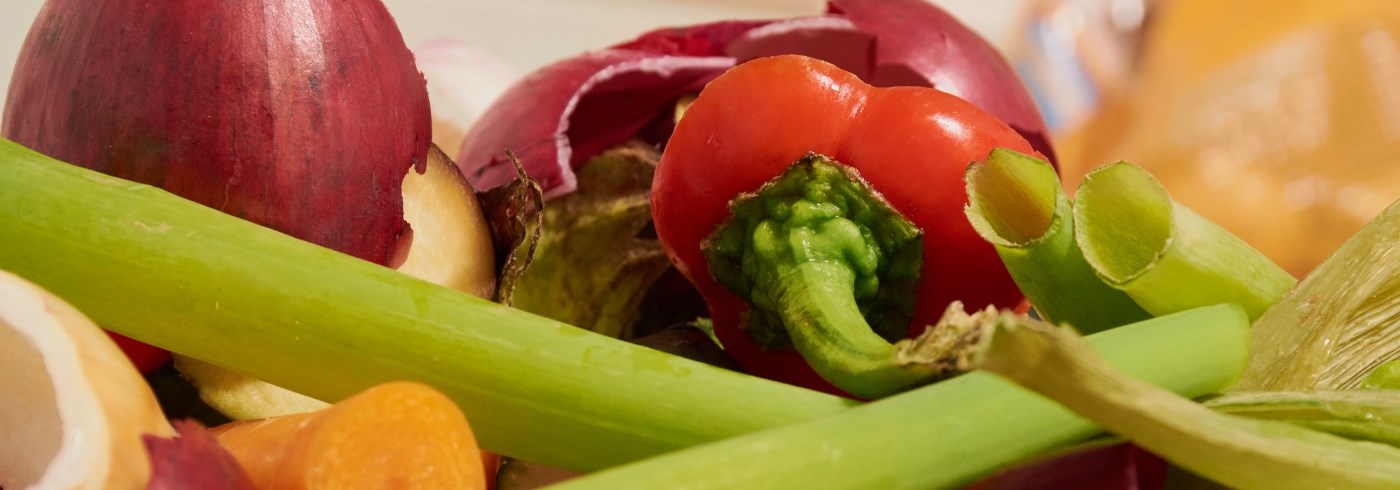
Green Bin Processing Using Anaerobic Digestion
Wonder where your Green Bin waste goes?
Durham Region processes all Green Bin materials at an existing Anaerobic Digestion facility. This technology allows additional materials, such as diapers and pet waste to be collected and processed. Anaerobic digestion is the preferred solution for Durham Region due to its many benefits including the production of renewable natural gas and fertilizer from the Green Bin materials.
What is anaerobic digestion?
Watch our video and learn about the anaerobic digestion process!
Using waste as a resource
Anaerobic digestion is a natural process that uses micro-organisms to break down organic material, like food scraps and pet waste, in an oxygen-free environment. This process produces biogas, a renewable natural gas, and digestate, a nutrient rich fertilizer that keeps soil healthy. Now that's using waste as a resource to promote a circular economy!
How is the renewable natural gas from the anaerobic digestion process used?
The Anaerobic Digestion facility produces biogas, which is upgraded to renewable natural gas (RNG). The RNG is used in a combined heat and power generation unit, producing electricity and heat for nearby greenhouse operations. Future plans include injecting the RNG into the natural gas pipeline network.
Frequently asked questions
| What goes in the Green Bin? |
Food waste
Paper products
Other compostable items
|
| What should not go in the Green Bin? |
|
| Where can I purchase a Green Bin? |
|
Green Bins are available for sale through the Region of Durham. |
| Are residents required to use compostable bags? |
|
Residents are required to use 100 per cent certified compostable liner bags for disposing of all Green Bin organic waste. Residents are strongly encouraged to use compostable alternatives for items such as diapers, menstrual and incontinence products, pet waste and pet litter where alternatives exist. |
| Why are compostable bags still required when the program accepts items with plastic components? |
|
Although the anaerobic digestion system is designed to remove non-organic materials, the less plastic introduced into the system, the easier it is to manage, and the less likely that plastic material will make its way into the finished digestate, which is used as fertilizer. Residents are encouraged to use compostable alternatives for products and materials accepted in the Green Bin where they exist. Compostable bags are designed to break down naturally, while regular plastic bags do not decompose. Compostable bags are also made from renewable materials making them a sustainable alternative to traditional plastic. |
| How are baby diapers and baby wipes managed? |
|
Diapers are broken down in the pre-processing process of the anaerobic digestion system. The organic portion of baby diapers will be processed in the Anaerobic Digestion system and the plastic portion will be disposed of. Baby wipes are often made from inorganic materials, therefore please place these items in the garbage, and never flush them down the toilet as they clog pipes and pumping equipment. |
| How are menstrual products managed? |
|
Menstrual products are broken down in the pre-processing process of the anaerobic digestion system. The organic portion of menstrual products will be processed in the Anaerobic Digestion system and the plastic portion will be disposed of. The organic portion of menstrual products (cotton, rayon, cellulose fibers) can be processed. Please put all plastic packaging and plastic applicators in the garbage. |
| Does the free compost shared with residents during Durham's Compost Giveaway events come from the Green Bin? |
| No, all the compost distributed to Durham residents during our Compost Giveaway events is produced from the leaf and yard waste program, rather than the Green Bin program and this program will continue. |
| Where is the Green Bin material processed? |
| The Anaerobic Digestion facility that processes Durham Region’s Green Bin material was selected through a competitive bidding process and is located near Leamington, Ontario. |
| What happens to digestate after anaerobic digestion? |
| The material that is left after anaerobic digestion is called digestate. Digestate is rich in nutrients and can be used as fertilizer for crops. |
| Is digestate safe? |
|
Digestate, when properly treated, is a safe and beneficial product. The pasteurization process helps reduce pathogens and enhances nutrient recovery, making it safe for use. The digestate from Durham Region’s anaerobic digestion processor is Canadian Food Inspection Agency-registered, meaning it meets safety, quality, and labelling standards for use as a fertilizer or soil amendment in Canada. The product undergoes testing for contaminants and risks to human, animal, and environmental health. Furthermore, the fertilizer derived from the digestate is certified organic by reputable certification bodies, ensuring it adheres to strict organic standards. |
Contact Us




